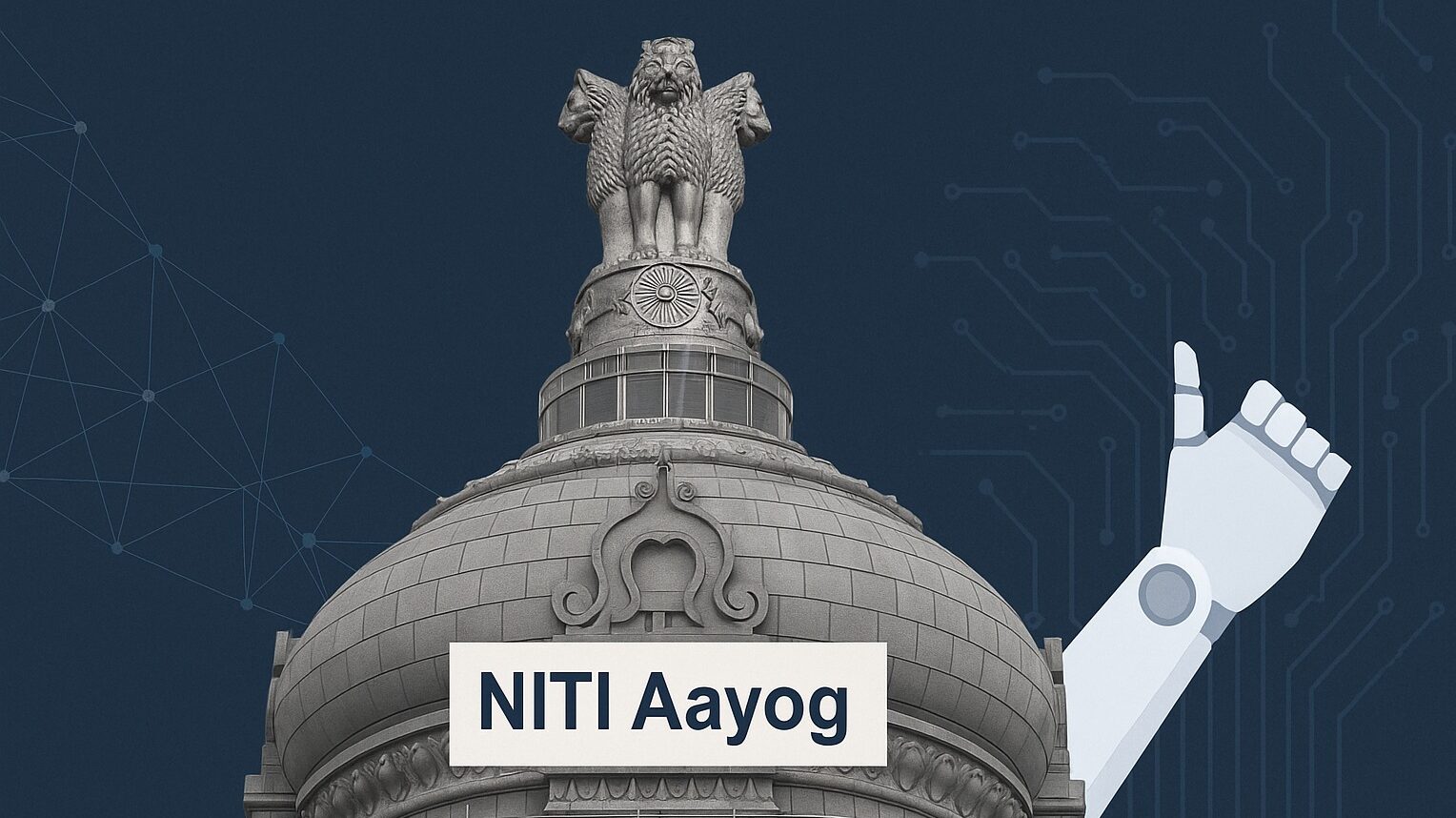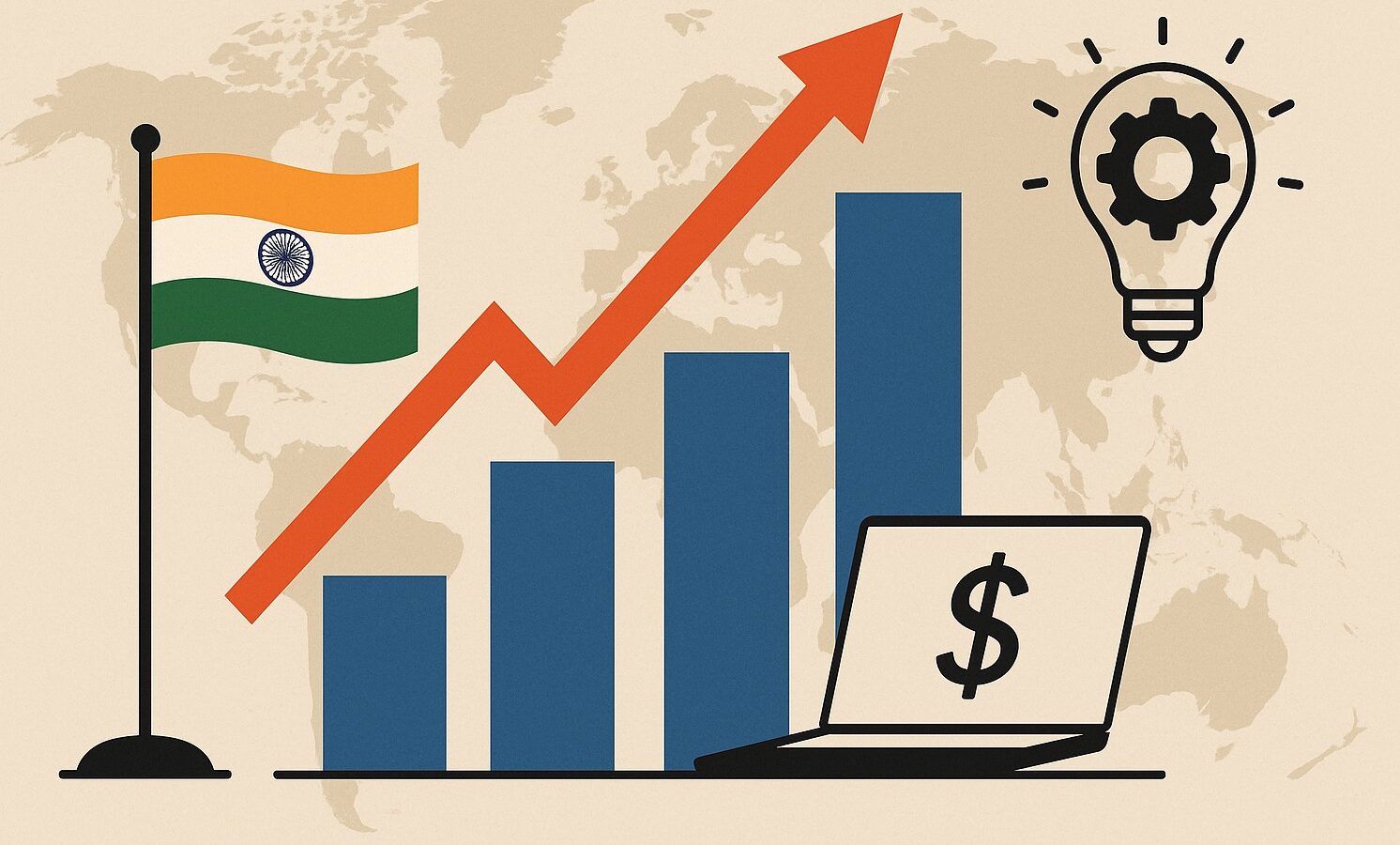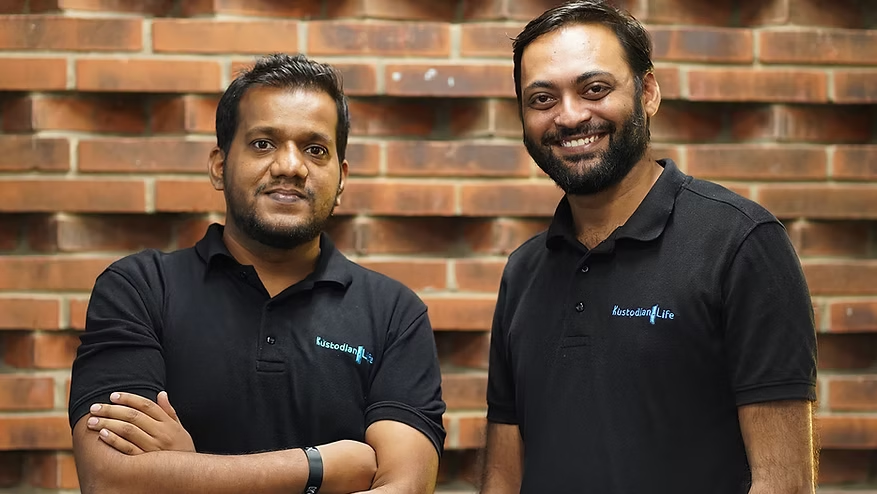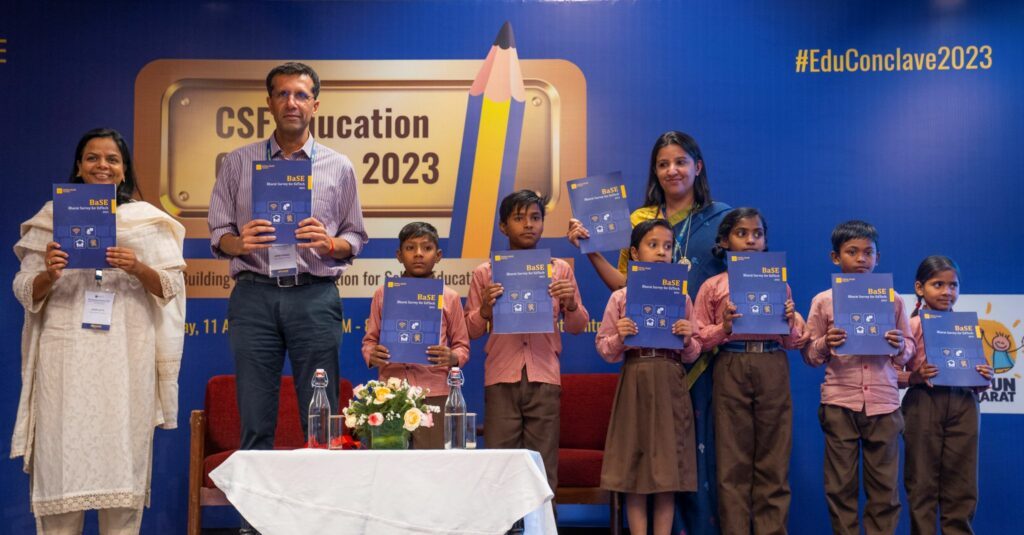New Delhi | NITI Aayog | September 15, 2025 Faster adoption of artificial intelligence (AI) can lift India’s GDP by an additional $500-600 billion by 2035, driven by productivity gains and operational efficiencies across the economy, according to a new roadmap released by NITI Aayog.
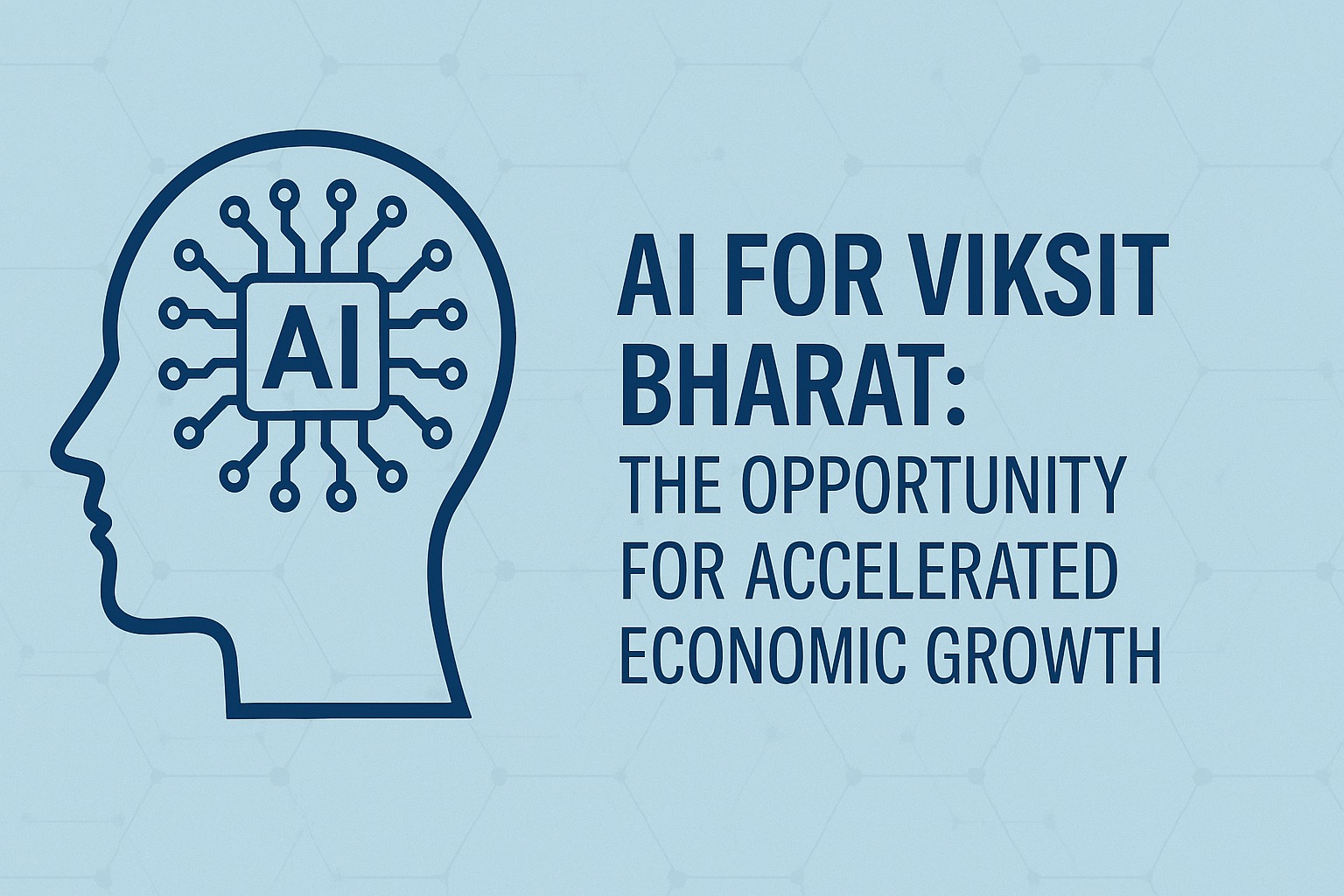
The report “AI for Viksit Bharat: The Opportunity for Accelerated Economic Growth” places India’s opportunity within a broader global shift, estimating $17-26 trillion in incremental value worldwide over the next decade. With its large STEM workforce and expanding R&D ecosystem, India could capture 10–15% of this global AI value, the report notes.
NITI AAYOG: Where the gains will come from?
Two sectors are set to feel the earliest and largest effects. Financial services could unlock $50–55 billion, led by better compliance, fraud detection and smarter lending; manufacturing could add $85–100 billion through quality, throughput and yield improvements. By 2035, AI’s contribution in each of these sectors could reach 20-25% of sectoral GDP, the report projects.
Growth math and the GDP path
On current trends, India’s GDP is projected to reach $6.6 trillion by 2035 at an average 5.7% growth rate. Under the government’s aspirational 8% “Viksit Bharat” path, GDP could touch $8.3 trillion, with AI acting as a meaningful bridge between the two trajectories.
Finance Minister Nirmala Sitharaman underscored the urgency of upskilling, pointing to concerns that as much as 80% of jobs could be displaced without timely workforce readiness, calling for targeted AI-driven skilling programmes to keep India’s labour market future-proof.
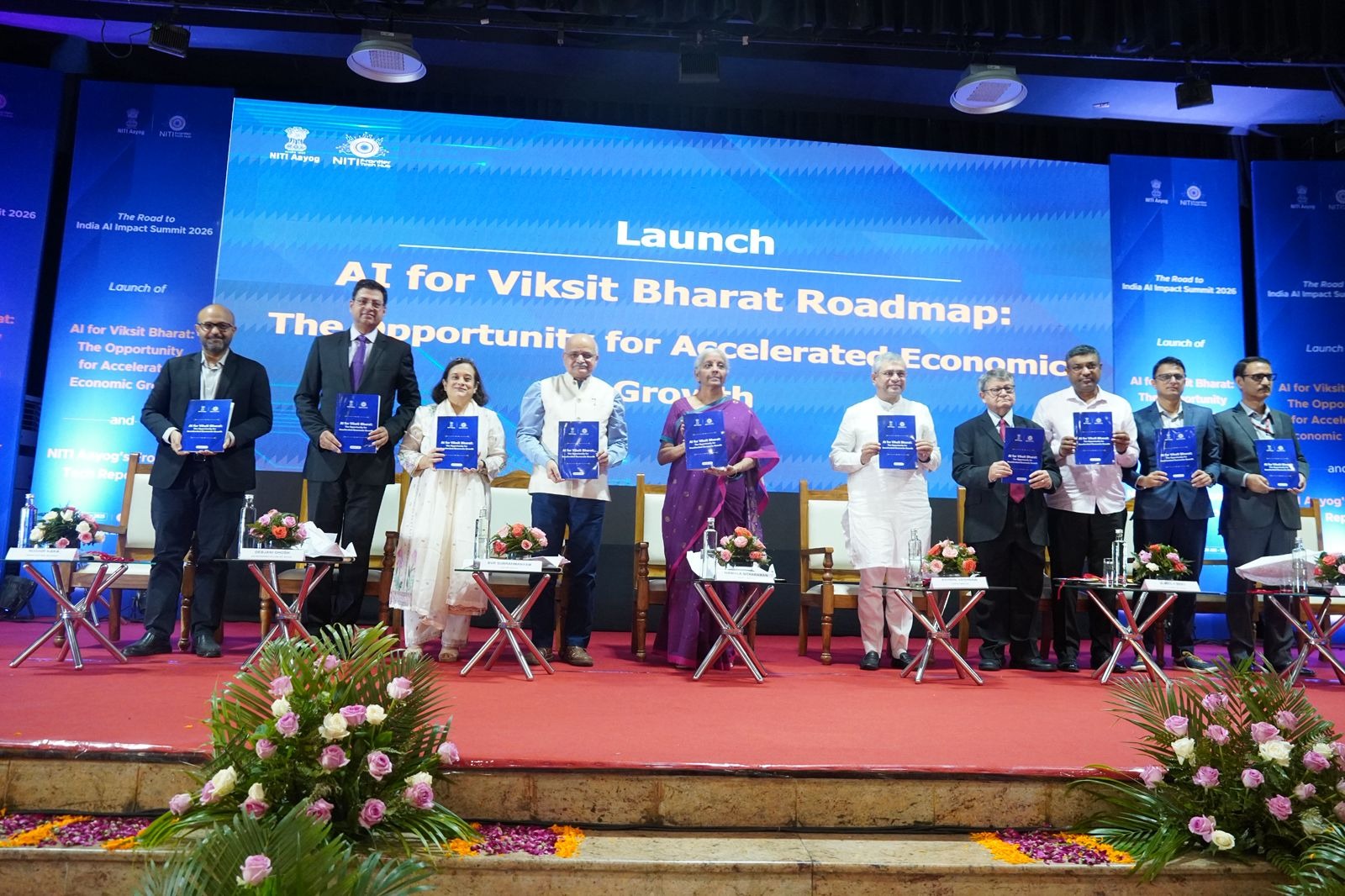
Launching the report, Sitharaman called for “soft-touch” regulation that keeps pace with fast-moving technology but avoids stifling it: “If the technology is on a sprint, regulation should also be on a sprint… We do not want regulation that literally wipes off the technology itself. We want regulations because we want responsible application.”
Alongside the roadmap, NITI Aayog announced a frontier tech repository, a curated set of live, impact-driven use cases and the Frontier 50 Initiative to help 50 aspirational districts and blocks deploy such technologies for faster service delivery.
With AI now central to global competitiveness, India’s pitch intertwines growth, jobs and guardrails: catalyse adoption where the gains are largest, skill early to soften displacement, and regulate with agility so innovation compounds rather than stalls. The targets are ambitious, but the direction is unambiguous and the clock, by the government’s own telling, is already on a sprint.
Also Read: Startup World Cup picks India for first-ever country edition at IMC 2025









